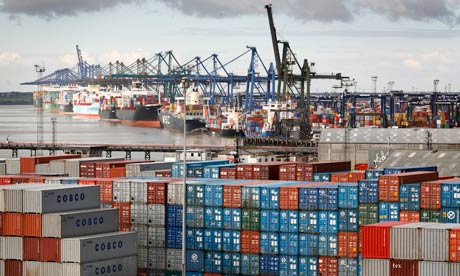Those who have read the recent reports by
PricewaterhouseCoopers, the United Nations and World Bank on the state of
global warming may be feeling a little grinchy this holiday season and it isn’t
because of the fruitcake. The latest round of global climate talks among
roughly 200 nations were held in Doha, Qatar last week and that got us thinking
at the Better BTU: what should America’s role in the climate change crisis be?
While the situation may not be as dire as doomsayers who
predict the end of the world based on an Aztec calendar, the picture painted by
reputable sources is bleak, nonetheless. PwC’s report shows that the global
community’s efforts to improve carbon emissions by 5.1% each year in order to
avoid a two degree Celsius increase in global temperature has fallen
drastically short. The improvement in 2011 was just 0.7% despite a global
economic slowdown. Since it is highly unlikely that the international community
could jump to the target 5.1% improvement rate in just one or two years, the
decarbonization percentage needed to stop permanent damage will only continue
to rise along with water levels.
The state of global carbon emissions was one of the topics
of the most recent round of climate talks in Doha, Qatar last week. Also on the
table was the Green Climate Fund, which exists to assist poorer countries adapt
to the changing climate.
Earlier reports that wealthier countries like the United
States had nearly reached its $30 billion pledge are now being adjusted as
individual entities Oxfam and the International Institute for Environment and
Development (IIED) show that very little of the aid has been in the form of
cash but has come in the form of loans or diverted funds from existing aid
budgets.
The European Union is currently the only governing body that
has said it will sign another binding agreement like the Kyoto Protocol and
unfortunately, it only accounts for about 14% of the world’s carbon emissions.
Unless the larger carbon emitters like China, India and the U.S. get on board,
a new agreement isn’t likely to produce results.
At Better BTU, we support the idea of assisting smaller
countries, especially those in the Pacific region who will be swallowed up by a
rise in water levels, but wonder if the Green Climate Fund is the best way
America can contribute.
The documentary film The
Island President shows how a rise in two degrees Celsius will completely
wipe out countries like The Maldives. But what exactly are these funds doing to
help these countries adapt?
The United States has built its reputation in the global
community as a pioneer in technology. We are the nation that introduced the
telephone, the airplane and the computer to the world. And so it might make
sense that our path to contributing to the global climate crisis should go
through technology.
Several companies in the U.S. have made significant
advancements in gasification technology, in addition to being the leader in
wind energy and among the top nations in solar energy. Americans have built
upon the contributions made by European countries but the industry remains
stalled due to an economic recession and a public that has not yet embraced the
technology.
At one time the idea of putting a man on the moon seemed
beyond ridiculous. President Kennedy stood in front of millions to declare that
his administration would achieve that feat and a space race between nations was
born. Now it’s time for Americans to re-engage with that same energy not for
exploring new worlds, but for saving our own.


Great article.
ReplyDeleteIt is amazing and surprising that conservation and energy efficiency (EE) efforts don't move forward even without any government assistance or encouragement. A kilowatt or gallon never used is one that never had to be produced, distributed, and consumed. At least up to a point, the costs associated with EE can be very small with a ROI in months, not years. Then those efficiency savings can be realized for years to come...
... And oh, by the way, it helps out the environment as well...
A gift that keeps on giving and giving. :-)